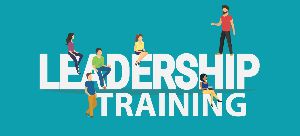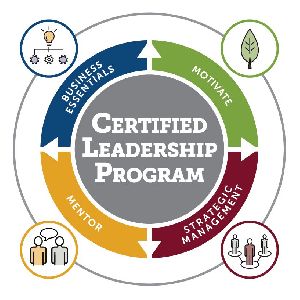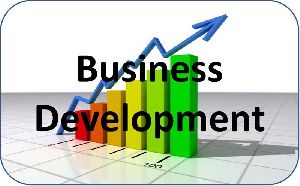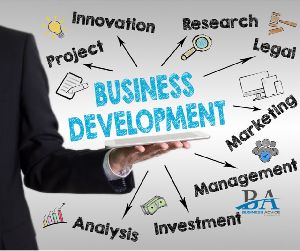
leadership training
1,000 - 60,000 Per Person
10 Person (MOQ)
introduction leadership is not just a role but a continuous journey of growth, learning, and adaptation. in the modern corporate landscape, the need for effective leadership has never been more critical. this guide explores the intricacies of a leadership training journey, offering insights into what it entails, its benefits, and how it can transform your professional trajectory. what is a leadership training journey? a leadership training journey is a structured process that aims to develop and refine an individual's leadership skills. it's a multifaceted journey that involves various stages of learning, self-discovery, skill development, and practical application. this journey is not a one-size-fits-all path but is tailored to address the unique needs and goals of each individual or organization. key components of leadership training journey assessment: understanding current leadership skills and identifying areas for improvement. customized training modules: engaging in training sessions that focus on various leadership aspects such as strategic thinking, effective communication, team management, and emotional intelligence. mentorship and coaching: working with experienced mentors or coaches for personalized guidance and feedback. practical application: implementing learned skills in real-world scenarios. feedback and reflection: continuously receiving and reflecting on feedback to foster growth and improvement. ongoing learning: committing to lifelong learning and continuous development. benefits of a leadership training journey enhanced leadership skills: improved decision-making, problem-solving, and team management abilities. increased self-awareness: greater understanding of personal strengths and weaknesses. improved team performance: stronger teams led by competent and confident leaders. personal growth: development of a broader skill set and increased confidence. organizational impact: positive influence on the culture and success of the organization. implementing a leadership training journey in your organization: identify leadership needs: assess the specific leadership needs of your organization. choose the right program: select a program that aligns with your organizational goals and culture. encourage participation: motivate employees to actively participate and engage in the journey. monitor progress: regularly track the progress and impact of the training. foster a culture of learning: create an environment that supports ongoing development and learning. challenges and solutions: common challenges include ensuring engagement, measuring effectiveness, and aligning training with organizational goals. solutions involve incorporating interactive and relevant content, setting clear objectives, and continuous monitoring and adaptation of the program. conclusion: a leadership training journey is an invaluable investment for both individuals and organizations. by embarking on this journey, leaders are not only enhancing their own skills but are also contributing significantly to the growth and success of their teams and organizations. it’s a pathway to transforming leadership potential into effective, impactful leadership reality. call to action: embark on your leadership training journey today. whether you're an aspiring leader or looking to refine your leadership skills, this journey is a stepping stone to unlocking your full leadership potential.
...more
Leadership Development Programs
1,000 - 60,000 Per Person
Introduction: In the constantly evolving landscape of business, effective leadership is the linchpin of success. Leadership Development Programs (LDPs) are crucial in nurturing the skills and mindsets needed for impactful leadership. This comprehensive guide delves into the details of these programs, highlighting their importance, components, and transformative impact. What Are Leadership Development Programs? Leadership Development Programs are structured initiatives designed to enhance the leadership abilities of individuals within an organization. These programs are tailored to cultivate a range of skills from strategic thinking and decision-making to emotional intelligence and team management. They are not just about imparting knowledge but about fostering a culture of continuous growth and leadership excellence. Key Elements of Leadership Development Programs: Targeted Training: Focused sessions on key leadership competencies such as communication, conflict resolution, and strategic planning. Experiential Learning: Hands-on experiences such as project leadership, simulations, and role-playing exercises. Mentorship and Coaching: One-on-one guidance from experienced leaders and coaches. Peer Learning: Opportunities to learn from fellow participants through group discussions and activities. Feedback Mechanisms: Regular feedback to help participants understand their progress and areas for improvement. Personal Development Plans: Customized plans that guide ongoing development beyond the program. Benefits of Leadership Development Programs: Enhanced Leadership Skills: Building a toolkit of skills necessary for effective leadership. Increased Organizational Performance: Effective leaders drive higher productivity and better team performance. Improved Employee Engagement: Leaders trained through these programs often foster a more engaged and motivated workforce. Career Advancement: Participants gain skills that prepare them for higher leadership roles. Cultural Transformation: Creating leaders who can embed a positive, performance-oriented culture within the organization. Implementing Leadership Development Programs: Needs Assessment: Identifying the specific leadership needs and goals of the organization. Customized Program Design: Tailoring the program to align with organizational objectives and participant profiles. Continuous Evaluation: Regularly assessing the effectiveness of the program and making necessary adjustments. Support and Resources: Providing ongoing support and resources to participants for continuous learning. Challenges and Overcoming Them: The primary challenges include aligning the program with business goals, ensuring participant engagement, and measuring the program’s impact. These can be addressed by clearly defining program objectives, using interactive and relevant training methods, and establishing robust metrics for evaluation. Case Studies and Success Stories: Highlighting successful leadership development programs from various organizations can provide valuable insights and inspiration for implementing effective LDPs. Conclusion: Leadership Development Programs are more than just training sessions; they are catalysts for individual growth and organizational transformation. By investing in these programs, organizations are not only enhancing their leadership pool but are also paving the way for sustainable success and innovation.
...more
Executive Coaching Service
1,000 - 60,000 Per Person
in the fast-paced and ever-changing business world, the role of executive leaders has never been more challenging or crucial. executive coaching services are designed to empower these leaders, enhancing their skills, decision-making abilities, and overall effectiveness. this guide explores the essence, benefits, and impact of executive coaching services, providing a roadmap for leaders and organizations seeking to harness their full potential. understanding executive coaching services: executive coaching is a personalized development process that focuses on improving the performance and leadership ability of executives. these services involve one-on-one sessions with a professional coach, tailored to address the specific challenges and goals of the individual leader. the process is collaborative, goal-oriented, and often transformational, leading to profound personal and professional growth. key components of executive coaching: personalized assessment: understanding the executive's strengths, weaknesses, and leadership style. goal setting: identifying specific, measurable, and achievable goals for the coaching engagement. focused sessions: regular sessions with the coach, discussing challenges, strategies, and progress. actionable strategies: developing and implementing practical strategies for leadership improvement. feedback and reflection: continuous feedback from the coach and self-reflection by the executive. accountability: the coach holds the executive accountable for progress and goal attainment. benefits of executive coaching: enhanced leadership skills: improvement in critical areas such as strategic thinking, communication, and team management. increased self-awareness: greater understanding of personal impact and areas for growth. improved decision-making: sharper and more effective decision-making abilities. career advancement: preparing executives for higher-level responsibilities and roles. organizational impact: positive influence on the culture, morale, and performance of the organization. implementing executive coaching in your organization: identify candidates: determine which leaders or potential leaders would benefit most from coaching. select the right coach: choose a coach with relevant experience and a compatible coaching style. define objectives: clearly outline the goals and expectations of the coaching process. monitor progress: keep track of the coaching engagement's progress and its impact on the executive and the organization. encourage openness: foster a culture where receiving coaching is viewed positively and as a sign of leadership commitment. challenges and solutions: key challenges include ensuring the right match between coach and executive, measuring the effectiveness of coaching, and integrating learned behaviors into daily practice. solutions involve careful selection of coaches, setting clear metrics for success, and providing ongoing support for behavior change. conclusion: executive coaching services are a vital tool for developing effective, agile, and visionary leaders. by investing in these services, organizations not only enhance individual leadership capabilities but also drive organizational success and adaptability in a complex business environment.
...more
Executive Coaching
1,000 - 10,000 Per person
Introduction: In today’s complex and rapidly changing business environment, executive leaders are increasingly turning to Executive Coaching Programs as a powerful tool for personal and professional development. These programs are designed to enhance the leadership qualities of top executives, helping them navigate the challenges of their roles more effectively. This guide will explore the nuances of Executive Coaching Programs, their benefits, and how they can lead to transformative growth in executive leaders. Understanding Executive Coaching Programs: Executive Coaching Programs offer a personalized development experience for high-level executives and business leaders. These programs focus on a wide array of leadership competencies, including strategic thinking, decision-making, communication skills, emotional intelligence, and team management. The goal is to provide executives with the insights, tools, and strategies they need to excel in their roles and drive organizational success. Key Components of Executive Coaching Programs: Personalized One-on-One Coaching: Tailored coaching sessions addressing the specific needs and goals of each executive. Leadership Assessment: Comprehensive evaluations to identify strengths and areas for improvement. Goal Setting and Action Plans: Developing clear, measurable goals and action plans for leadership development. Ongoing Support and Feedback: Regular feedback sessions and continuous support from an experienced coach. Skill Development: Focusing on developing essential leadership skills and competencies. Performance Tracking: Monitoring progress and evaluating the impact of coaching on leadership performance. Benefits of Executive Coaching Programs: Enhanced Leadership Abilities: Improving critical leadership skills and decision-making capabilities. Increased Self-Awareness: Gaining deeper insights into personal leadership styles and their impact. Improved Communication Skills: Developing more effective communication strategies for diverse business environments. Better Team Management: Enhancing the ability to motivate and lead high-performing teams. Strategic Thinking and Innovation: Cultivating a mindset for strategic planning and innovation. Implementing Executive Coaching Programs: Identifying Candidates: Selecting executives who will benefit most from coaching. Choosing Qualified Coaches: Partnering with experienced and certified executive coaches. Setting Clear Objectives: Establishing specific goals and expectations for the coaching engagement. Integrating Coaching with Business Strategy: Aligning coaching goals with the organization's overall strategy. Measuring Impact: Using metrics to assess the effectiveness and ROI of the coaching program. Challenges and Solutions: Implementing Executive Coaching Programs can be challenging, particularly in ensuring commitment from executives and measuring the long-term impact of coaching. Solutions include setting clear expectations, creating a culture that values professional development, and utilizing qualitative and quantitative metrics for assessment. Conclusion: Executive Coaching Programs are a vital investment for any organization looking to cultivate strong, effective leaders. By participating in these programs, executives can unlock their full potential, leading to significant personal growth and a positive impact on their organizations.
...more
Corporate Training Workshops
1,000 - 60,000 Per Person
Introduction: In an era where business dynamics are continually evolving, the significance of Corporate Training Workshops cannot be overstated. These workshops are essential tools for businesses seeking to enhance the skills and knowledge of their workforce, adapt to changing market demands, and maintain a competitive edge. This comprehensive guide delves into the world of Corporate Training Workshops, exploring their importance, structure, and transformative potential for businesses and employees alike. Understanding Corporate Training Workshops: Corporate Training Workshops are structured programs designed to educate and enhance the skills of employees in a corporate setting. These workshops cover a vast range of topics, from technical skills and industry-specific knowledge to soft skills like leadership, communication, and teamwork. The focus is on practical learning and application, providing employees with the tools they need to succeed in their roles and contribute effectively to the organization’s goals. Key Components of Effective Workshops: Customized Content: Tailoring workshop material to meet the specific needs of the organization and its employees. Interactive Learning: Incorporating hands-on activities, group discussions, and real-world case studies for engaging learning experiences. Expert Facilitators: Utilizing experienced trainers or industry experts who can provide valuable insights and guidance. Practical Application: Emphasizing on the application of learned skills to real workplace scenarios. Feedback and Evaluation: Gathering feedback from participants and evaluating the effectiveness of the training. Benefits of Corporate Training Workshops: Skill Enhancement: Upgrading the skills and knowledge base of employees. Improved Productivity: Equipping employees with the tools to work more efficiently and effectively. Employee Engagement: Boosting morale and job satisfaction through investment in employee development. Adaptability: Enhancing the ability of both employees and the organization to adapt to change. Innovation: Encouraging creative thinking and innovation within the workplace. Implementing Corporate Training Workshops: Assess Training Needs: Identify the areas where training is most needed within the organization. Define Objectives: Clearly outline the goals and expected outcomes of the training. Select Suitable Formats: Choose the format that best suits the content and audience, whether in-person, online, or hybrid. Ensure Engagement: Implement strategies to maximize participant engagement and learning. Measure Impact: Evaluate the effectiveness of the training in achieving its objectives and impacting the business. Challenges and Solutions: One of the primary challenges is ensuring the relevance and applicability of the training content. This can be addressed by involving employees in the planning process and regularly updating training materials. Another challenge is measuring the ROI of training programs, which can be managed by setting clear metrics and conducting thorough evaluations. Conclusion: Corporate Training Workshops are an indispensable asset for any organization aiming to foster a skilled, efficient, and adaptable workforce. By investing in these workshops, companies can not only enhance the capabilities of their employees but also drive overall organizational growth and success.
...more
business development training services
1,000 - 60,000 Per person
Introduction: In the competitive world of business, staying ahead means constantly evolving and adapting. Business Development Training Services play a pivotal role in equipping professionals and organizations with the skills and strategies necessary to thrive. These services offer a comprehensive approach to enhancing business acumen, from strategic planning to effective sales techniques. This guide will explore the significance of Business Development Training Services and their role in fostering sustainable business growth. Understanding Business Development Training Services: Business Development Training Services are specialized programs designed to improve the skills and knowledge of individuals and teams in areas crucial for business growth. These services cover a range of topics including market analysis, sales strategies, client relationship management, negotiation skills, and innovative thinking. The aim is to build a robust foundation that enables businesses to identify and seize growth opportunities effectively. Key Components of Business Development Training Services: Strategic Business Planning: Training in formulating and executing strategic business plans. Market Analysis Techniques: Equipping professionals with tools to analyze and understand market trends. Sales and Marketing Skills: Enhancing abilities in sales, marketing, and customer acquisition. Client Relationship Management: Strategies for building and maintaining strong client relationships. Negotiation and Persuasion Skills: Developing effective negotiation tactics and persuasive communication skills. Innovation and Creative Thinking: Encouraging innovative approaches to business development challenges. Benefits of Business Development Training Services: Enhanced Business Skills: Upgrading the professional skillset essential for business growth. Increased Revenue Potential: Empowering businesses to maximize sales and revenue opportunities. Improved Market Positioning: Enabling businesses to strategically position themselves in competitive markets. Stronger Client Relationships: Fostering lasting and profitable client relationships. Innovative Business Strategies: Cultivating a culture of innovation and strategic thinking. Implementing Business Development Training Services: Assessing Training Needs: Identifying the specific training needs of your organization. Selecting Appropriate Programs: Choosing training services that align with your business objectives. Encouraging Employee Participation: Motivating team members to actively engage in training programs. Applying Learned Skills: Encouraging the practical application of acquired skills in business scenarios. Evaluating Impact: Regularly assessing the effectiveness of training on business development goals. Challenges and Solutions: One of the main challenges is ensuring the relevance of training content to specific business contexts. Solutions include customizing training modules to meet unique business needs and keeping content up-to-date with industry trends. Another challenge is measuring the ROI of training programs, which can be managed by setting clear, measurable objectives and employing effective evaluation tools. Conclusion: Business Development Training Services are an invaluable resource for any organization aiming to navigate the complexities of market expansion and business growth. By investing in these services, companies not only enhance the capabilities of their teams but also lay the groundwork for continued success and innovation.
...more
business development training
1,000 - 60,000 Per Person
Introduction: In the competitive realm of business, the importance of continual growth and development is paramount. Business Development Training (BDT) is a critical tool that equips professionals with the skills, knowledge, and strategies to drive business growth and success. This guide offers an insightful look into Business Development Training, its key components, benefits, and how it can transform professionals into skilled business developers. Understanding Business Development Training: Business Development Training encompasses a comprehensive approach to teaching professionals the art and science of growing a business. It involves a range of topics from strategic planning, market analysis, sales and negotiation techniques, to relationship management and networking skills. BDT aims to refine the skills needed to identify and capitalize on growth opportunities, build valuable partnerships, and effectively position a business in the market. Key Components of Business Development Training: Strategic Planning and Analysis: Training in assessing market trends, identifying opportunities, and creating strategic plans. Sales and Negotiation Skills: Enhancing abilities in sales tactics, negotiation, and closing deals. Networking and Relationship Building: Techniques for building and maintaining strong professional relationships. Marketing and Branding: Insights into effective marketing strategies and brand positioning. Innovation and Product Development: Encouraging creative thinking for product innovation and diversification. Benefits of Business Development Training: Improved Business Strategies: Equipping participants with the skills to formulate and implement effective business strategies. Enhanced Sales Performance: Refining sales techniques to boost performance and revenue. Stronger Professional Networks: Building valuable connections and partnerships. Increased Market Understanding: Providing a deeper understanding of market dynamics and customer needs. Personal and Professional Growth: Developing skills that contribute to individual career advancement and organizational success. Implementing Business Development Training: Identify Training Needs: Assess the specific development needs within your organization. Choose the Right Program: Select a training program that aligns with your business goals and employee profiles. Encourage Active Participation: Foster a culture where continuous learning and development are valued. Apply Learning to Practice: Encourage the application of learned skills in real-world business scenarios. Evaluate Effectiveness: Regularly assess the impact of training on individual and business performance. Challenges and Solutions: Some challenges include ensuring the relevance of training content, engaging participants, and measuring the impact of training. Solutions involve customizing training to meet specific business needs, using interactive and practical training methods, and establishing clear metrics for success. Conclusion: Business Development Training is an indispensable resource for professionals and organizations aiming to navigate the complexities of business growth successfully. By investing in BDT, companies can foster a culture of continual learning and development, equipping their teams with the tools necessary for business success and innovation.
...more
Business Development Services
1,000 - 60,000 Per Person
In the ever-evolving landscape of the modern business world, staying competitive and driving growth is paramount. Business Development Services (BDS) play a crucial role in this journey, offering the tools, strategies, and expertise necessary for businesses to expand and thrive. This comprehensive guide delves into the scope of Business Development Services, their importance in fostering business growth, and how they can be a game-changer for your company. Understanding Business Development Services: Business Development Services encompass a wide range of activities, strategies, and solutions designed to improve a company’s market position and achieve financial growth. These services focus on the development of long-term value for an organization from customers, markets, and relationships. Whether it’s a startup or an established company, BDS provides the essential support to identify and capitalize on new opportunities. Key Components of Business Development Services: Market Analysis and Strategy: Comprehensive market research and analysis to identify potential opportunities and develop effective strategies. Sales Development and Support: Techniques and tools to enhance sales performance and customer relationships. Partnership and Alliance Building: Strategies to identify and establish valuable partnerships and alliances. Product Development and Diversification: Guidance on developing new products or diversifying existing offerings to capture new market segments. Brand and Reputation Management: Techniques to build and maintain a strong brand and corporate reputation. Benefits of Business Development Services: Increased Revenue: Identifying and exploiting new business opportunities to drive revenue growth. Market Expansion: Assisting businesses in expanding their reach into new markets. Strategic Advantages: Providing insights and strategies for competitive advantage. Improved Customer Relationships: Enhancing customer engagement and satisfaction. Organizational Growth: Facilitating overall growth and development of the company. Implementing Business Development Services: Identify Business Needs: Understand the specific needs and challenges of your business. Choose the Right Service Provider: Partner with a BDS provider that aligns with your business goals and culture. Set Clear Objectives: Define clear and measurable goals for the BDS engagement. Engage Stakeholders: Ensure alignment and engagement of all stakeholders within the organization. Monitor and Adjust: Regularly review the impact of BDS and adjust strategies as needed. Challenges and Solutions: Common challenges include aligning BDS with the company’s vision, measuring the impact, and ensuring stakeholder buy-in. Solutions involve clear communication of benefits, setting achievable goals, and fostering a culture that values growth and development. Conclusion: Business Development Services are vital for any business aiming to grow, innovate, and stay competitive. By leveraging these services, companies can unlock new potentials, foster sustainable growth, and navigate the complexities of business expansion with greater confidence and efficiency.
...moreBe first to Rate
Rate ThisOpening Hours